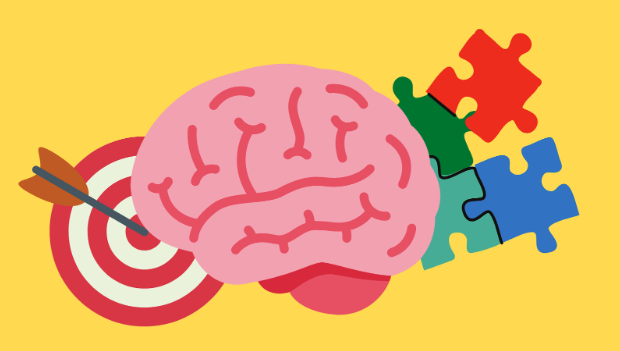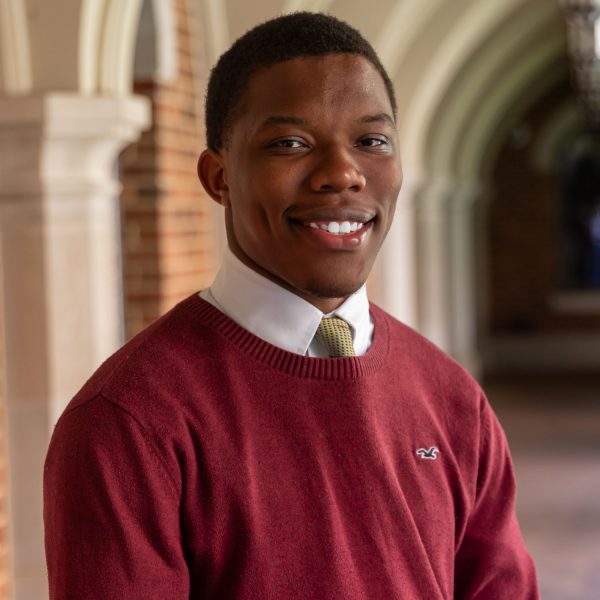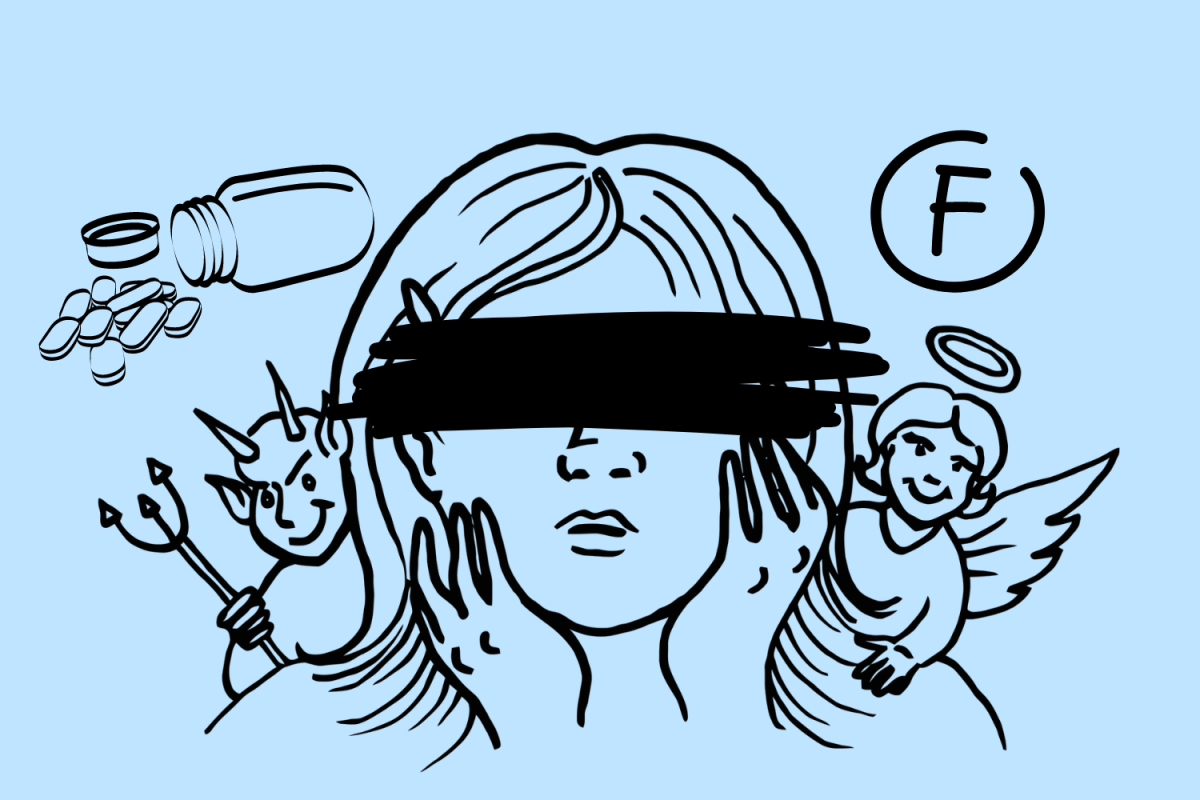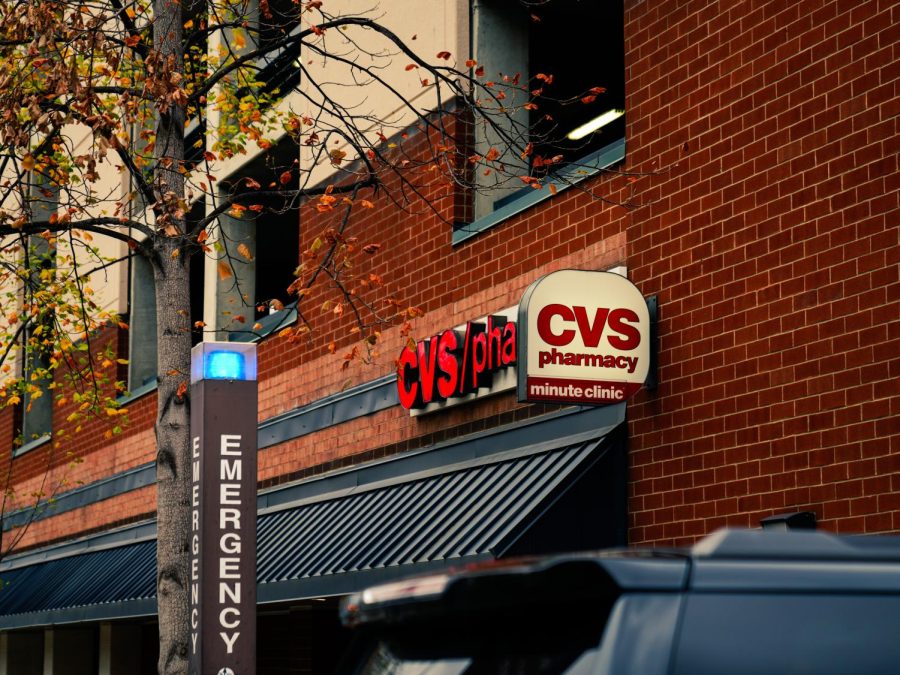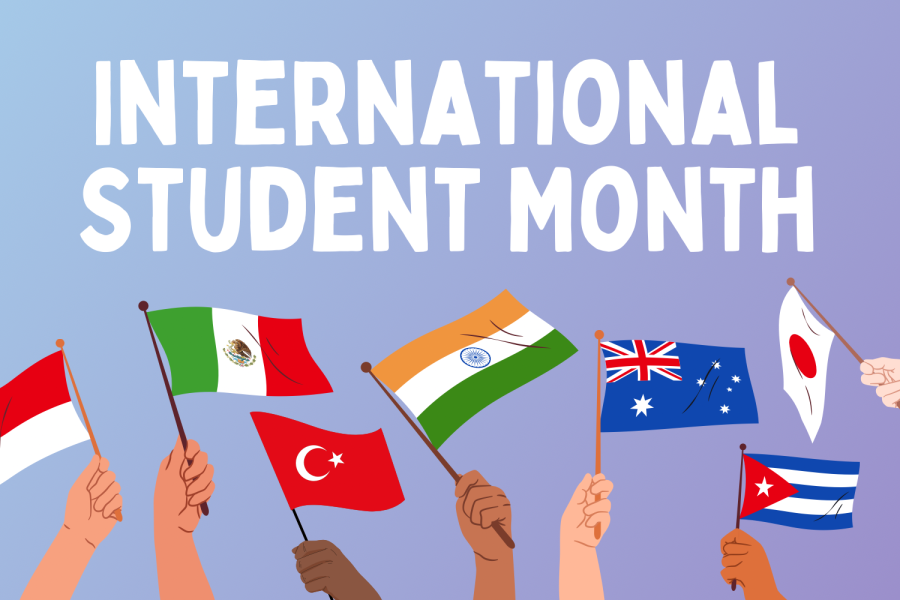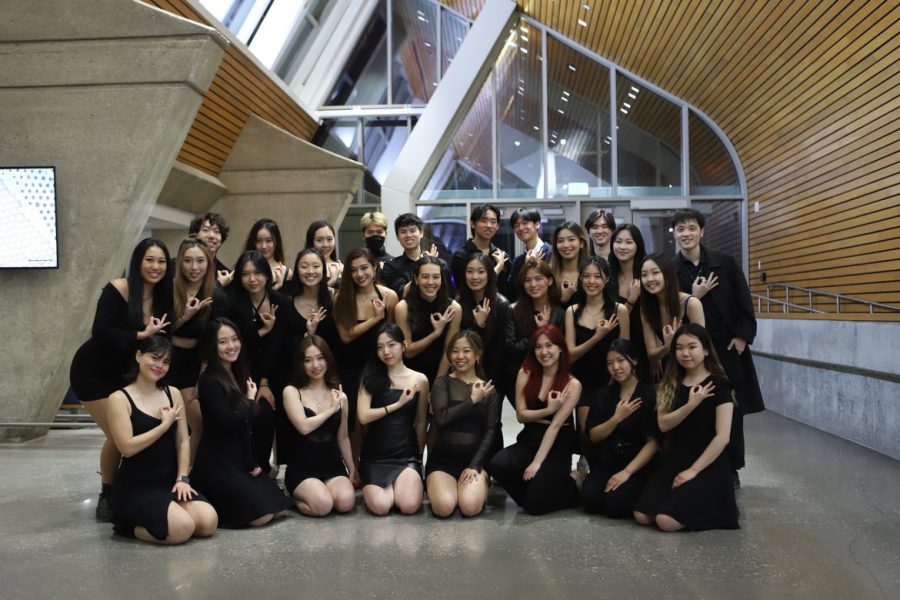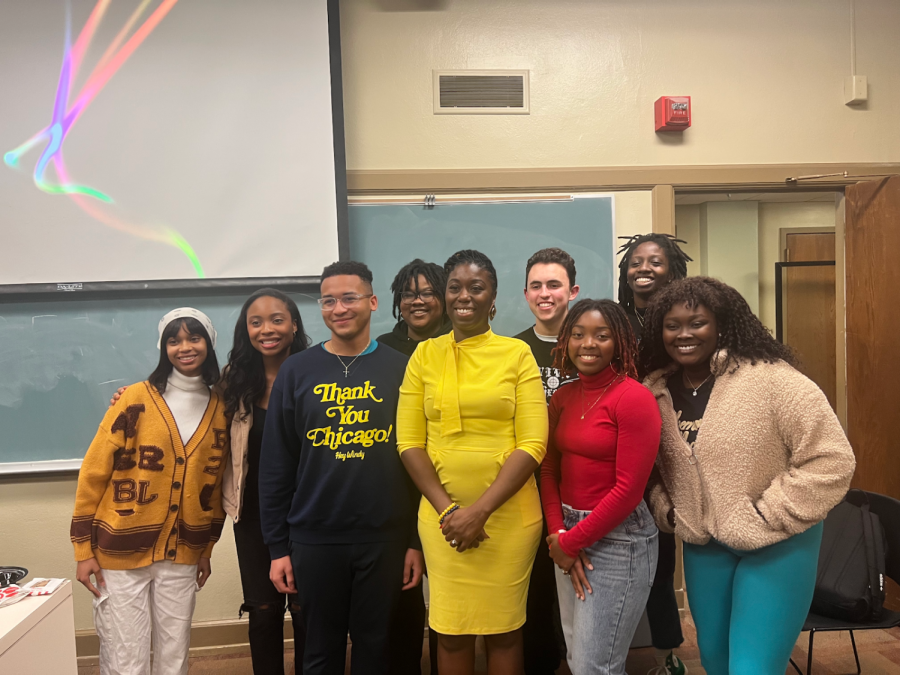Since I was born, the world has brought forth many challenges.
Coming into this world two months premature and experiencing my first near-death experience as I exited the womb was a devastating experience for my family. I couldn’t imagine how I felt at that moment, possibly knowing that I might have only gotten a few breaths in during my short time on earth. Beginning my life earlier than expected caused many unknown neurological discrepancies within my brain, leading me to experience internal and social setbacks that have made my life uniquely inspiring.
My first symptoms of having ADHD showed up when I started kindergarten. My teacher became fed up with my behavior in her class and characterized me as a wild, distracted and impulsive student. My mom became tired of the constant complaints and took me to a pediatrician in August 2007. We expected the doctor to present us with some delightful news about how I was a mentally thriving child and that the disruptions that I was experiencing throughout school were just me adjusting to my new environment. However, when the doctor returned with the ADHD symptoms checklist during my examination, I watched my mother’s face grow concerned as I received my official diagnosis.
Although I was only four years old, my doctor prescribed me a dose of a potent medication and sent me home. My mom and I thought my ADHD would be treatable with the medicine and that I’d live a perfect life after the visit. Unfortunately, as we walked out the door of the pediatrician’s office, we began down a dark path that would lead us through moments of failure, vexation and hopelessness. Rather than benefiting from the drug, my childhood became a series of testing many different ADHD medications. I dreaded that part of my day, having to self-dope myself up with Vyvanse every morning to subside something that I believed was hindering my education and making me a nuisance to those around me. The medicine caused my tiny, fragile body to shiver in the hottest temperatures, made me unreasonably tired and stole my appetite. It took my body and childhood, making me look like a walking zombie.
As a kid, I went home knowing that people in this world can hate you or find something about which to criticize you without properly knowing you.
ADHD (attention-deficit/hyperactivity disorder) is a chronic neurodevelopment condition that affects the brain’s neurological capabilities. Immediate symptoms associated with ADHD include lack of focus, fits of rage, absence of motivation and poor self-image. ADHD primarily affects children, but many adults later discover their diagnosis. The symptoms that challenged my everyday life were low-self esteem, troubled relationships and difficulty at school. These symptoms created a sense of loneliness in every community I desired to be a part of. The social groups within my schools didn’t understand what I was going through and thought I was a “mental wreck” who simply valued time alone. I dreamed of having friends and being included in an environment away from home. ADHD restricts a part of the brain that allows you to form social connections. It was challenging to speak to people at first, not because of my little ego, but because I didn’t know what to say! Through my past experiences with those who bullied me, I saw the world as a place with nothing but people interested in hurting my feelings.
I remember very vividly that the first day of second grade was fried chicken day in the cafeteria, and I was getting ready to bring my tray to my classroom to begin eating. All of the seats in the room were occupied but one. When I shuffled my tiny feet over to the table, the students there looked at me with displeasing faces, saying, “ugly weirdos can’t f****ng sit here.” I was angry at that moment and sat at the table anyway, not saying anything that whole lunch period. As a kid, I went home knowing that people in this world can hate you or find something about which to criticize you without properly knowing you. Having to experience loneliness constantly caused me to develop a sense of detachment from my peers. I was furious that no one wanted to be my friend, I was angry that no one wanted to talk to me and I was mad that those around me failed to understand that what I was going through wasn’t a joke. Having people whisper things about you behind your back yet act friendly in your face every day made it very hard to love others and myself.
My classmates teased me for being a “pill-taking weirdo,” mocked my way of walking, drew pictures of my massively undeveloped head and passed them around the class. It made me very ashamed even to have been diagnosed with ADHD; it made me feel guilty for not being considered normal. My peers viewed ADHD as a contagious disease or an excuse for my perceived academic limitations. I became nearly suicidal and experienced severe depression as it was nearly impossible for me to have friends like everyone else. This point in my life made me realize that I was alone in the fight to prove that I should be accepted into society as an average person. I had no real friends, no one to turn to, just sadness that was left to linger in an emotionally unstable mind. After my medication sent me to the hospital with an overly racing heart rate, I decided to take back control of my life and go without it.
As the years progressed, I searched for a purpose to continue carrying out this life I saw with so much hurt and aggression. But I couldn’t find any reasons. I felt hopeless, knowing I’d never find someone with whom to connect, which is especially necessary for a person of neurodivergence to succeed in social settings!
My mom and I went through countless appointments with local psychologists, and none of them worked. She felt drained and tired of having to find solutions that would minimize her child’s erratic behavior.
That is, until I reached high school.
The bullying within the walls of my poorly developed high school was something I had experienced for years. It turned me into a person of rebuttal, a person of denial and a person of constant aggression. I felt like I had to fight constantly to remain relevant.
My classmates teased me for being a “pill-taking weirdo,” mocked my way of walking, drew pictures of my massively undeveloped head and passed them around the class. It made me very ashamed even to have been diagnosed with ADHD; it made me feel guilty for not being considered normal.
Then, I shifted. I opened my heart to those around me, making myself vulnerable in hopes of finally being accepted. I began using all of my anger toward the world to create meaningful relationships with professionals and students who had the same interests as me. I discovered that my ADHD allowed me to multi-task, hyperfocus, communicate, negotiate and spontaneously generate rational, detailed ideas. That’s something that most teenagers and even adults cannot do.
I discovered my superpower by finding my niche within extracurricular activities. The above skills were used to my advantage in ways I could’ve never thought. Throughout my academic career, everyone in my classes constantly berated me for “talking entirely too much.” I felt humiliated to share my thoughts when the teacher asked, as everything I said annoyed those around me. So I embraced my talking abilities by getting involved in broadcast journalism and public speaking. I thought that because of me not being able to communicate appropriately with everyone, this initiative would be another failure, leading me back to square one.
I gave my interests a try and dwelled in the world of extracurricular activities. Little did I know that partaking in this new hobby would change my life completely. My first debate competition was held at a local university in front of city professionals. I felt nervous because I had never talked in front of anyone. I delivered my speech and formulated many rebuttal statements. After the ceremony, I discovered that I had scored 5s across all judge’s boards, earning a scholarship and award given by Curtis L. Collier, a federal judge sworn in by Bill Clinton.
I was ecstatic because, from that moment on, I hoped people would compliment my voice usage and how it sounded rather than criticize me on how annoying they thought it was. I began doing more work in my community. I interviewed Martin Luther King Jr III, became a National Association for the Advancement of Colored People (NAACP) award-winning activist, became a teen reporter for my city’s No. 1 hip-hop radio station, published three journalist pieces, produced two full-length documentaries and won a state-level award for ‘best newscast.’ My prominence in journalism peaked when I was offered my first job in the news.
I felt pride in myself, knowing I had one-of-a-kind capabilities. The suicidal thoughts, years-long depression and nights of loneliness finally came to a screeching end. I achieved self-love, and once that happened, I became the most resilient person I know.
I had just finished up one of twelve internships with a local CBS affiliate station and was wondering what my next step might be. The station’s photographer emailed me the job listing, and I applied, expecting to be rejected. I knew that I was competing with more qualified candidates who had degrees in the field of journalism. I thought, “no way they’d want a high-schooler working for them.” I submitted my application and got a call the next day from the production department manager, saying that I’d be an excellent fit for the role. I came into his office that next day to sign the contract and get my foot in the door.
I was utterly blown away and thankful for my shortcomings. If you asked me years ago if I would be working for a news station full-time in the future, then I would’ve laughed at you because my self-esteem was so low due to public perceptions of my ADHD. I finally felt a sense of confidence amongst those who talked about me throughout the school.
I felt pride in myself, knowing I had one-of-a-kind capabilities. The suicidal thoughts, years-long depression and nights of loneliness finally came to a screeching end. I achieved self-love, and once that happened, I became the most resilient person I know.
Yet, the fight to prove to the world that neurodivergence is not a crippling disability, but a superpower, will continue. Stories like mine aren’t the most severe, and other students who struggle with neurodivergent disabilities are probably going through a story like mine, or even worse. We neurodivergent students should remain together as a community and work to educate people on what makes us unique and equal to those without superpowers. In turn, Vanderbilt should dedicate time to helping students with neurodivergent disabilities—both within and beyond its Next Steps program—navigate campus and find their niche through its assortment of organizations. If I had learned about and explored extracurricular activities before high school, I would’ve discovered my superpowers earlier, saving myself years of pain. Vanderbilt should make it mandatory for all students to take a course about neurological disabilities and how to communicate with those who are living with these circumstances, such as SPEDS 3330 (Characteristics of Students With Severe and Multiple Disabilities) or SPED 2160 (Cultural Diversity in American Education), from the Peabody Department of Special Education. This initiative would expand everyone’s awareness of those that struggle with neurological disabilities.
Walking on this campus has already tested my emotional well-being; even though some people are turned away by my awkward introductions, they will have to understand that my speaking up when not asked took a lot of strength during my childhood.
These four years will be filled with some bumpy turbulence. But when I finally get the chance to walk across the stage at graduation and shake the hand of the Chancellor, I will prove that my disabilities are not poison, but superpowers.











